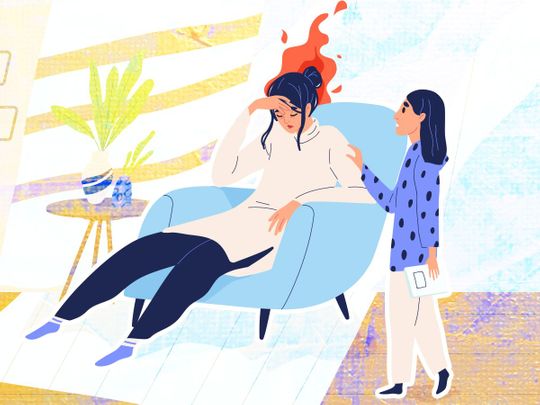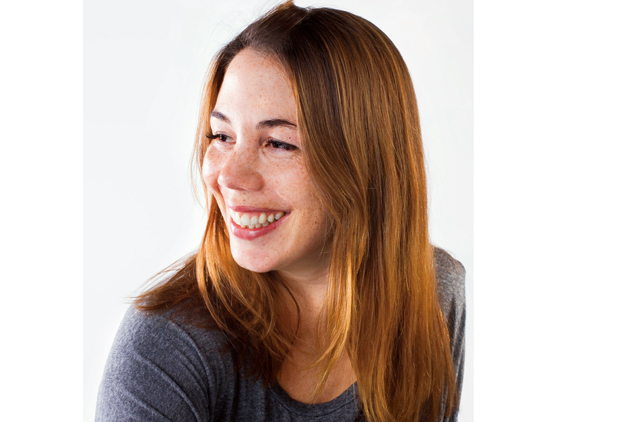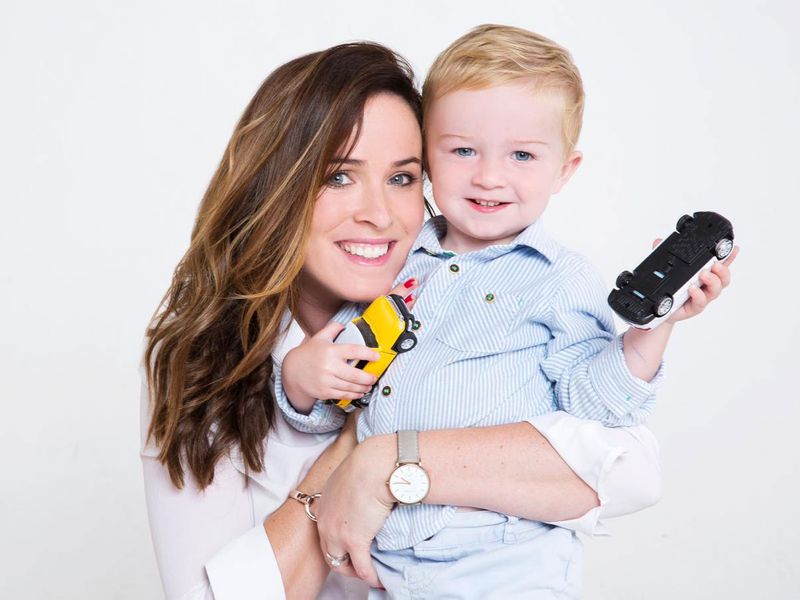
It’s no secret that when the pandemic first hit, in many ways parents were hit the hardest. Overnight we suddenly became full-time teachers to our children, on top of our regular occupation - plus full-time snack-makers, hand-hygiene nurses, lockdown-entertainment planners, and the whole gamut of tasks that comes with caring for a family when no-one is allowed to enter or leave the house.
But, by and large, we were up to the challenge. It was a struggle, but we rolled up our sleeves, took a deep breath and – as far as possible - made sure everyone was OK. That’s just what mums and dads have to do.
Jump to nine months later and we’re now dropping like flies. The adrenaline that kept us on top of things when in crisis mode has dissipated and parents across the world are burning out, with huge spikes in reported in anxiety disorders, depression and manifold mental as well as physical ailments.
“We are seeing an influx of people with COVID-19 burnout at the Centre in Dubai,” says Mandeep Jassal, behavioural therapist at the Priory Wellbeing Centre, Dubai. “Trying to keep everything afloat can take its toll emotionally, especially on women.”
Mums feeling the ‘rough edge’ of the pandemic
While both men and women are affected, the stresses tend to be particularly strong on mothers, who may feel a greater burden for having to hold down a job (if they are working), while also running the home and often taking the lead on home-schooling during the pandemic.
Researchers from Boston Consulting Group, which surveyed more than 3,000 people in the US and Europe, found that working women spend an average of 15 hours a week more on unpaid domestic labour than men. Meanwhile work-life conflict is linked to 'poor physical and mental health, and life dissatisfaction'.
“Most women have learnt from their mum or another female role model of what a woman ‘should’ be doing,” says The Priory Dubai’s Jassal. “These expectations – whether set from other people, by social media or oneself – create huge pressure for women to be all things to all people. COVID-19 has further exacerbated the responsibilities women need to juggle as they try to work full-time, run a home, raise children and look after elderly parents, hence why they are often referred to as the “sandwich generation”’.
This has been the situation for Louisa Kiernander, a mum of three (aged 10, 12 and 14) and psychotherapist at MindSolutions.ae, who says that she’s felt compelled as a mother to compensate for all of the disappointment her children have had to face this year, and it’s now taking its toll on her.

“I feel like I am addicted to trying to be what I perceive as the perfect parent,” she says. “All three of my kids have their issues, and I put their issues and needs above my own. But it means I am ending up flat-out exhausted.”
This is a COVID-related problem, she adds: “Because I am trying to fill in the gaps in their lives created by COVID. And I can’t.”
Louisa says she is worried about the impact such long-term stress might have on her health, and plans to dial down her activities to try and prevent this.
“I know that all sort of health problems and cancers can be cause by being stressed all the time and I honestly think I am going to make myself sick by living at such a high adrenaline level all the time."
Working with clients from the UAE and across the world in her professional role as a hypnotherapist, she also says it is a pattern she has seen in many other mothers, as they deal with the fall-out from the pandemic. “I feel like some of us just adapted so quickly and so completely that we didn’t have time to process. And now it’s almost as if we have finally run out of steam.”
From mental to physical
This has certainly been the case for me. As a working mother of a 6-year-old, 4-year-old and nursing baby when the pandemic hit, I was well aware that this would be a stressful time.
Then our wonderful nanny fell sick and had to stop working for us, the oven broke and the washing machine flooded the entire apartment.
With everything we’d known as normal seemingly collapsing around us, it was up to me (and my husband) to keep things afloat.
And the adrenaline-fuelled version of me did a pretty good job of it at first. I jumped on the Zoom-fitness wagon, threw myself into home learning with my two school-age sons, did whatever cooking and cleaning I could manage, and then settled into my own work when the kids were in bed from 8pm.
I felt as if I was ticking all the boxes, but I also knew it was not sustainable.
So when I started getting dizzy spells and what I can only describe as ‘brain zaps’ – what felt like juddering bolts of electricity searing through my head – I assumed it must be stress-related. But with so much to juggle at home, I ‘didn’t have time’ to see a doctor about it.
And this is when caregiver’s burnout can really strike, says Jassal. By pressing pause on all of our own needs for the sake of everyone else’s, what might have started as a purely mental ailment can swiftly turn into a physical one. And it's important to understand and respect the mind-body connection.
“The less we work our body’s muscles, the weaker and less energy we will have,” she says. “The same applies to our mental health – the more we engage in nurturing our overall sense of wellbeing, the more energy and motivation we will have to undertake activities. The cycle can spiral downwards as well as upwards.”
By the time I finally made it to a doctor’s office, I was so dizzy that I didn’t feel safe driving any more, I had no appetite, and I had throbbing pain in my shoulder and right side. It turned out to be shingles – a viral disease that can have serious and chronic complications if left untreated – and I needed a course of treatment as well as a week of complete rest to start feeling normal again.
Burning up
It’s been strangely reassuring for me to learn that I am not alone in my experience. Michelle Farrell, a Dubai-based mother-of-three from Ireland who runs pre- and postnatal fitness business ReBalance ME, says that she hit her own form of burnout, experiencing low mood, anxiety and eventually a nasty flare up of the recurrent autoimmune condition that she suffers from. “Since March it’s been absolutely hectic,” says Michelle. “We chose to stay in the UAE over the summer, whereas we would usually fly home, because we felt an obligation not to put the children’s grandparents at any kind of risk. And now I feel like I really regret it because I’m exhausted. Emotionally and physically drained.”

As an entrepreneur, Michelle has also had to deal with the stress of the changing business conditions because of the pandemic. “I run a fitness business for women and, because many more families stayed in the UAE over the summer than would do in a normal year, people kept working out. So since March I haven’t had a break at all, and it’s been absolutely non-stop.”
At the same time, the shift away from in-person classes onto Zoom has made the business model less profitable – something that events company owner and mum of two, Felicity (who asked for her name to be changed), very much identifies with. “In hindsight, the first few months of the pandemic for me were consumed with utter disbelief and I spent the first month so angry and railing against it all.
"I’m a partner in an event’s company in Dubai and it took me a while to realize and accept there was no work to be done - so once the initial struggle and personal need to feel like I ‘should’ be working/achieving/producing subsided, I was able to let that go and then almost ‘enjoyed’ the time at home with family."
But now that things are starting up again, that pressure to try and get business moving again is very real and the need to pay the bills is stressful, she adds: "It has been heartbreaking and so unfair to have to stand by and literally watch our company waste away through no lack of trying to create work.
“As a mum, I’ve felt additional pressure to put a brave face on, and ensure the children were doing their home-schooling, were not spending excessive amounts on their devices out of school hours, and to make sure I was always available to offer them support, in addition to my husband. I felt pulled in all directions and, at times, completely helpless.”
‘Always on’ culture
All types of mums and workers are affected by burn out, says The Priory’s Jassal. “High-flyers can be badly affected because they tend to drive themselves, to the detriment of their health. They may also be shouldering large responsibilities at home and work, budgets, and teams. But it affects those at every level. Some expats living in the UAE have a high sense of responsibility as part of their cultural upbringing to send money back home to their parents or siblings to support them. Many may be holding down several jobs in order to do this. Naturally, this can bring about its own stresses and challenges.”
The magic of remote-working technology and the ability to work from home has also been a double-edged sword, she says.

“Working from home often means the boundaries between work and home lives become blurred. Many are now going above and beyond and working even harder than normal to demonstrate their value to their bosses as the worldwide economy struggles. For those who are still home-schooling, the pressures are even greater.
Namita Tandon, a Dubai-based working mother of two boys aged 6 and 9 from India, identifies with this. “Honestly, I hate working from home, more so when kids are around. There seems to be no work- life balance. Even though I spend more time at my desk when WFH, less work seems to get done. I also miss being able to just switch off from work - the demarcation is all blurred now.
“And the mum guilt weighs too heavily with home learning as well - when their school work is not done, or they are just spending endless hours idling away or on screen as I just need to get my work done.
“So far,for me, the biggest challenge was and still is, trying to keep calm in front of the kids especially at trying times like when there was a COVID case in their class. While I was freaking out internally, we still had to really keep it casual and talk to the boys about going into isolation and why we were doing it. And that takes a toll, just trying to keep it all together.”
Situations like this can devolve into unhealthy coping mechanisms if not kept in check, says The Priory’s Mandeep Jassal, “While the benefits of being around family 24/7 has clear advantages, it can often be quite stressful in reality – and a dependence on unhealthy foods and other vices such as obsessive internet shopping and substance abuse can be considered coping strategies for many, which of course they are not. They may provide a short-term emotional fix, but in the long term they create more debt and feelings of guilt and shame.”
A shift in attitudes toward mental health
If there is one positive thing to have come out of the pandemic, it’s that people are beginning value mental health more – even amongst demographics that may not traditionally be perceived as placing much emphasis on emotional wellbeing.
The Bupa Global Executive Wellbeing study analysed the effects of the Covid-19 pandemic on the world’s high-net-worth community and found that people are taking their mental health more seriously now than they did five years ago. Over a third (37 per cent) of high-net-worth individuals in the Middle East said they spoke to a doctor or mental health professional, which is significantly more than the global average (26 per cent), and a third (32 per cent) accessed virtual medical services or used online support resources.
Jennifer * is a teacher in Dubai and mother-of-two, who says that the rollercoaster of remote learning and looking after her own kids has made her re-evaluate her priorities. “I have definitely worked hard on my mental health and tried to make it a priority,” she says. “I have been enjoying relaxed beach walks, practicing 10 minutes of yoga before bed, using aromatherapy, Himalayan salt lamps and trying some meditation. I definitely find switching off from technology at least an hour before bed helps.
"My advice to other working mums is to hang in there as this time will eventually pass. Try not to put too much pressure on yourself and your kids for everything to be perfect because nothing is right now! (Oh and be kind and supportive to the teachers - they really are working hard and trying their best in pioneering this new way of learning!).”
Mothers should not neglect to ask for support, concludes The Priory’s Jassal. “Women need support, and access to support if they are to prevent long-term depression and anxiety from taking hold – common mental health issues that can be overlooked. Women are also notorious for putting themselves last when it comes to their health and asking for help.”
Mandeep recommends the following strategies to help women to look after their mental health and reduce the likelihood of ‘burnout’ at this time:
- Acknowledge how you are feeling by listening to your warning signs. Set boundaries and learn to say ‘no’
- Do activities that you want to do as well as things you have to do. Break them down into manageable ‘chunks’ and don’t be afraid to ask for support from family and friends if needed
- Undertake at least 30 minutes of exercise per day – a proven way of helping both the mind and body to relax and de-stress, while also releasing an abundance of ‘feel-good’ hormones
- Find your form of relaxation e.g. soothing music, reading or mindful meditation and allow yourself time every day to find a quiet corner in the house to enjoy by yourself, uninterrupted. Many mindfulness and meditation apps offer different types of meditation for different concerns, or simply basic meditation.
- Sleep and wake at the same time every day, even if your sleep pattern was disrupted. Sleep and mental health are intrinsically linked. Without enough sleep condition such as stress, anxiety and depression can thrive.








